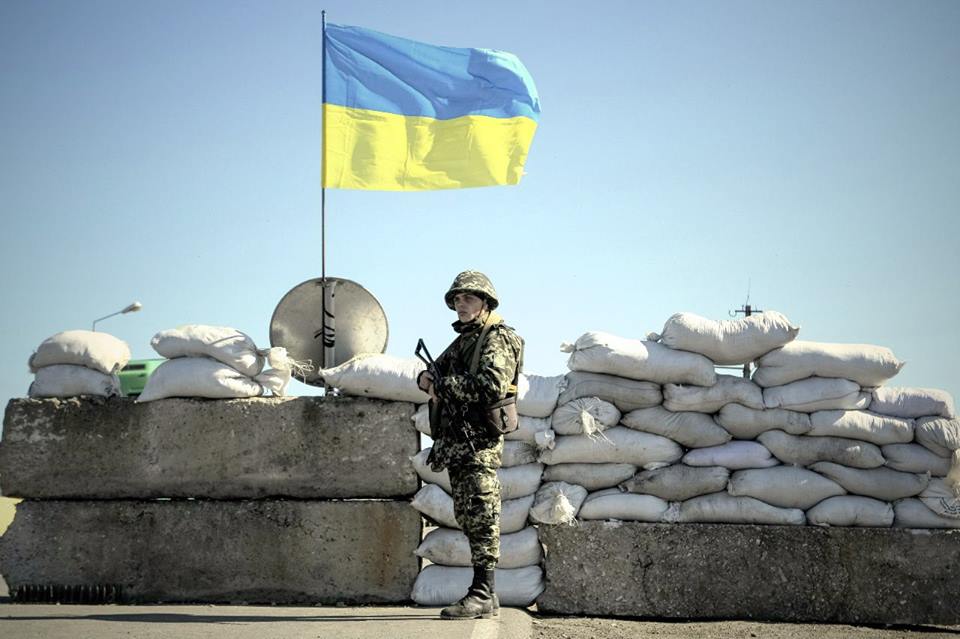Russia’s invasion of Ukraine is now in its sixth month with no end in sight to what is already Europe’s largest conflict since WWII. In the months following the outbreak of hostilities on February 24, the courage of the Ukrainian nation has earned admiration around the world. Many international observers are encountering Ukraine for the first time and are learning that in addition to their remarkable resilience, Ukrainians are also extremely innovative with high levels of digital literacy.
This tech sector strength is driving the Ukrainian response to Russia’s imperial aggression. It is enabling the country to defy and in many instances defeat one of the world’s leading military superpowers. A start-up culture that owes much to Ukraine’s vibrant IT industry is providing rapid solutions to frontline challenges in ways that the more traditional top-down Russian military simply cannot match.
The tech component of Ukraine’s battlefield success is perhaps not as surprising as it might at first appear. According to the 2022 Global Skills Report by Coursera, the country ranks among the global top ten in terms of technological skills.
This high position reflects the impressive progress made in recent years to support the growth of the country’s IT sector and to foster greater digital literacy throughout Ukrainian society. Since 2019, the Ukrainian authorities have prioritized digital skills and have sought to promote learning through the Diia.Digital Education online platform, which serves as an “educational Netflix” featuring courses conducted by experts and celebrities.
This approach appears to be working. The platform currently boasts a completion rate of 80% among those who sign up for courses. Nor has Russia’s invasion prevented Ukrainians from enhancing their IT skills. Around 60,000 Ukrainians have registered for courses since the start of the war, with the most popular topics being training for new tech sector professions, media literacy, and cyber hygiene.
Ukraine’s emphasis on digital innovation was shaping the country long before Putin launched his full-scale invasion on February 24. In 2021, Ukraine became the first country in the world to give digital passports the same legal status as physical passports for domestic use. Ukraine was the fourth European country to introduce digital driving licenses and also developed the world’s fastest online business registration service.
Efforts to promote greater digitization continue despite today’s wartime conditions. This is recognized as important for the war effort and is also seen as an essential ingredient for Ukraine’s post-war recovery. I am convinced that tech-focused educational initiatives must remain a strategic priority for the country. By 2025, 85% of all occupations will require digital skills.
The Ukrainian authorities are currently supporting a project to train 5,000 internally displaced women for new careers in the creative and tech industries. There is clearly huge demand for such tech-related retraining opportunities, with the application process for the first phase of this initiative attracting around 36,000 candidates.
A pilot project to reform computer studies within the Ukrainian school system is also proceeding against the backdrop of the ongoing Russian invasion. The first stage will begin in September and will feature 50 secondary schools, before being scaled up to the entire country next year. Thanks to this project, an estimated four million Ukrainian schoolchildren will gain access to a state-of-the-art digital education.
Ukraine’s broader transformation into a genuinely digital state is continuing despite the disruption of the war. This progress is perhaps most visible in terms of the Diia.City project. Two weeks before the Russian invasion, Ukraine launched this special economic initiative offering some of the most attractive taxation terms in the world for tech companies. Ukrainian and international IT companies have continued to sign up to the Diia.City project since the outbreak of hostilities, with a total of 260 companies now registered. Clearly, they believe in Ukrainian victory and are confident about the country’s future development as a digital powerhouse.
Digital services have been launched to support those in the combat zone, allowing them to apply online for financial assistance. Likewise, the Diia mobile app allows anyone to financially support the Ukrainian military via a few clicks. Ukrainians can use the country’s digital platforms to report news of Russian military deployments in their localities and can submit digital reports detailing property damage.
The team at the Ministry of Digital Transformation is currently working with thousands of volunteers to wage a digital war against Russia on the information and cyber fronts. The ministry has initiated the creation of Ukraine’s very own IT army, which brings together specialists from Ukraine and other countries around the world. Today, this army consists of more than 250,000 IT volunteers participating in what is widely recognized as the world’s first cyber war.
Ukraine’s innovative use of technology is allowing the country to punch above its weight and defend itself against a much larger enemy. This experience will be studied for years to come as an example of how digital literacy and tech excellence can cancel out the traditional advantages of conventional military strength and transform the modern battlefield. The future of the world will be shaped by technology and today’s Ukraine is leading the way.
About the author: Valeriya Ionan is Ukraine’s Deputy Minister for Eurointegration at the Ministry of Digital Transformation. A version of this article was originally published by the Atlantic Council’s UkraineAlert Service.
